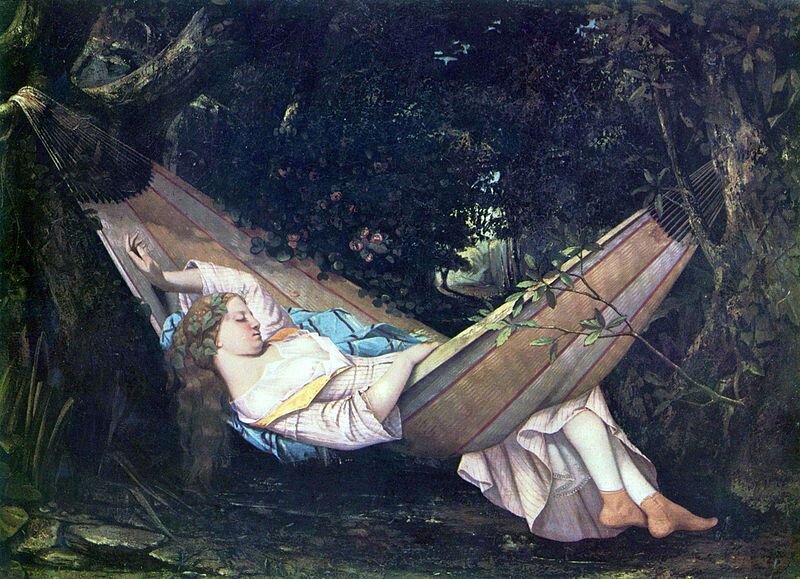
Research
Sleep is the New Sex
By this I mean two things: first, recent research suggests that more people (especially more women) crave sleep than sex, and sleep has taken over from sex in the popular imagination as a topic for cultural anxiety and thwarted need. In an era of sexual saturation but widespread exhaustion, sleep is a prime target of desire.
I theorize sleep in contexts where the lived experience of sleeping and waking comes together with the historical and social constitution of sleep (for the philosophers: it conjoins phenomenological and genealogical analysis). In doing so it builds on my recent essays, collected as a book entitled Anaesthetics of Existence: Essays on Experience at the Edge, which address themes including time lost to drug use, sexual assault against unconscious victims, and childbirth as a limit-experience.
"Sleep is the new sex" in a second sense: this project also follows my earlier research in focusing on gender and sexuality as relevant axes of analysis. From tropes of Sleeping Beauty, to advice to mothers on getting children to sleep, to wakefulness as a marker of successful manhood, discourses of sleep exemplify cultural understandings of masculinity, femininity, and heteronormativity in ways largely unexamined. In short, I will write the first feminist philosophy of sleep.
Where is this work?
Some of it can be found in my latest book, Anaesthetics of Existence, especially in the chapter “Anaesthetic Time.”
An article, “Reading Advice to Parents about Children’s Sleep: The Political Psychology of a Self-Help Genre,” is published in the journal Critical Inquiry (Winter 2023). It reads advice to parents about children’s sleep over the past fifty years as cultural anxiety about neoliberal economics and the development of an independent subject. In the spirit of Melinda Cooper’s work on the family in the age of neoliberalism, and following Jessica Benjamin’s work on subject formation and domination, I show how in trying to get their children to sleep “right,” mothers are being shuttled between creating independence and ensuring functional attachment in future citizens.
A second article, co-authored with Hannah Haugen, is called “The New Horizontal Worker: Privacy, Sexuality, and Professionalism in the Digital Bedroom,” and it appears in the journal Intermedialities (Fall 2023). The essay examines media coverage in 2020 and 2021 of the COVID-19-related practice of “working from bed.” Although presented as a new phenomenon, working from bed has a long history. We suggest that the late modern bourgeois understanding of the bedroom as a private space has long been manipulated by artists, writers, and other celebrities both through staged photos and more self-conscious representation. These representations play on the paradox of a public figure making their intimate self visible, and invite an audience without losing control of the scene. By contrast, media representation of (and advice about) working from bed for white-collar professionals is fraught with anxiety about how to create an image of a desexualized, generic worker whose bed, bedroom, and self-in-bed are newly available to clients, co-workers, and bosses. Presenting distinctive challenges for women workers, the advice we surveyed focuses on aesthetics and comportment, using “professionalism” as a code for discipline and trivializing the consequences of home surveillance.
“Selling Sleep: A Qualitative Study of Sleep Coaches in Western Canada,” co-authored with Jeanique Tucker, summarizes our work interviewing "sleep coaches" and the mothers who hired them. The relatively new role of “sleep coach” is another aspect of the advance of paid service providers into areas of intimate life previously kept within the family. We show how norms of work, time, gender, and parenting shape the way our participants thought about the kind of help new mothers need when a baby won’t sleep on schedule. It’s the first study of sleep coaches in Canada, and appears in Qualitative Sociology Review, October 2025.
I’m currently writing an essay about the work ethic and sleep, and another about the dilemma of trying to recall events that occur while unconscious (including asleep). Reading Chanel Miller’s memoir about a sexual assault she cannot remember, I ask, how could memoir reconstitute a subject around her own forgetting in order to resist the counter-narratives of rape culture?
Anaesthetics of Existence: Essays on Experience at the Edge
Cressida J. Heyes | Duke University Press, 2020
Winner of the 2021 David Easton Award from the American Political Science Association for a book that "broadens the horizons of contemporary political science by engaging issues of philosophical significance in political life through any of a variety of approaches in the social sciences and humanities.”
“Experience” is a thoroughly political category, a social and historical product not authored by any individual. At the same time, “the personal is political,” and one's own lived experience is an important epistemic resource.
In Anaesthetics of Existence Cressida J. Heyes reconciles these two positions, drawing on examples of things that happen to us but are nonetheless excluded from experience. If for Foucault an “aesthetics of existence” was a project of making one's life a work of art, Heyes's “anaesthetics of existence” describes antiprojects that are tacitly excluded from life—but should be brought back in.
Drawing on critical phenomenology, genealogy, and feminist theory, Heyes shows how and why experience has edges, and she analyzes phenomena that press against those edges.
Essays on sexual violence against unconscious victims, the temporality of drug use, and childbirth as a limit-experience build a politics of experience while showcasing Heyes's much-needed new philosophical method.
Praise for Anaesthetics of Existence
“Incredibly smart, wide ranging, inventive, and timely, Cressida J. Heyes's Anaesthetics of Existence offers a detailed and philosophically rigorous phenomenological exploration of experience. Heyes does not merely report on phenomenology, she does it with an aliveness to her prose and an expansiveness to her thinking that feels fresh, original, and exciting. A marvelous book.”
— Gayle Salamon, author of The Life and Death of Latisha King: A Critical Phenomenology of Transphobia“Without a doubt, Heyes’ Anaesthetics of Existence is a marvelously written, timely, and exciting book. It is both a scholarly feat—impeccably researched and persuasively argued—and a pleasurable read that offers some respite and solace amidst the chaos of postdisciplinary time.”
— Corinne Lajoie, Contemporary Political Theory“‘Anaesthetics of Existence,’ writes Cressida J. Heyes, ‘is a book about refusal, exclusion and liminality.’ More than this, it is a book about the unevenness of attention, about the tendency of bodies to flicker in and out of consciousness, and about extreme ordinariness and the increasing ordinariness of the extreme. This book is timely, original, and offers new insights within the philosophy of experience.”
— Jack Halberstam, author of The Queer Art of Failure